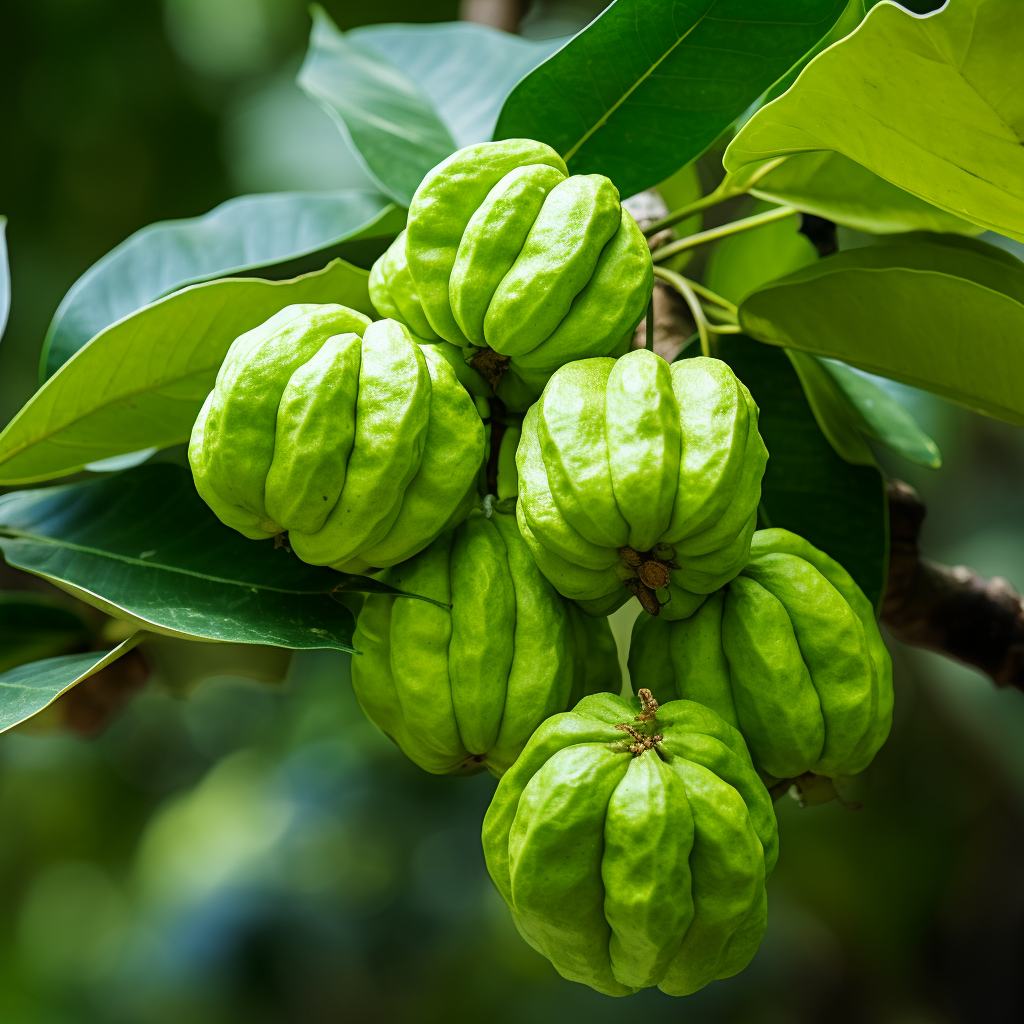
The Truth about Garcinia Cambogia: A Comprehensive Overview
Garcinia cambogia remains a prominent choice amongst individuals looking to address weight concerns. But as with many dietary supplements, its efficacy and safety are under scrutiny. This article delves deeper into Garcinia cambogia, shedding light on its uses, benefits, and associated risks.
Origins and Common Uses
Garcinia cambogia, scientifically termed Garcinia gummi-gutta, hails from the warm locales of Indonesia. Its distinctive pumpkin-like appearance and sour rind have been celebrated both in the culinary and medicinal world. This rind not only offers a unique zest to dishes like fish curries but has also been sought after for potential health advantages ranging from addressing gastrointestinal issues to managing rheumatoid arthritis and elevating cholesterol levels.

The Weight Loss Proposition
Undoubtedly, the most widespread application of Garcinia cambogia in the health sector pertains to its role in weight management. The question remains: Why?
Hydroxycitric Acid (HCA) and Weight Management
The rind of Garcinia cambogia is rich in a compound known as hydroxycitric acid (HCA). Preliminary studies suggest that HCA could:
- Enhance feelings of satiety, thereby reducing caloric consumption.
- Augment the rate of fat oxidation.
- Curb the production of fats in the body.
While such findings suggest a promising role for HCA in weight management, one must approach them with caution. Recent scientific investigations present a more complex picture, sometimes contradicting the potential weight loss benefits of Garcinia cambogia and HCA.

Examining the Research Landscape
Multiple studies, each with its unique design, have delved into the efficacy of Garcinia cambogia and HCA. Noteworthy is a 2002 study that highlighted a significant reduction in caloric intake and subsequent weight loss in participants who consumed HCA. It's crucial to understand that the variability in:
- Study durations.
- Participant demographics.
- Dosages administered.
Could lead to a spectrum of outcomes. A synthesis of 22 human studies provided a holistic view, suggesting that while Garcinia cambogia and HCA may offer weight management benefits, their effects might be more subtle than once believed. Thus, Garcinia cambogia might serve as a complementary approach to holistic weight management when combined with other healthful practices.

Safety and Quality Assurance: Upholding Australian Standards
While Garcinia cambogia has been traditionally used in many cultures, its safety remains paramount. Recognising the significance of this:
- Few reports have indicated potential liver sensitivity in specific individuals using Garcinia cambogia. It's worth noting that many factors can contribute to such responses, and it's essential to use products as directed and under the guidance of a healthcare professional.
- Some users have reported minor side effects, akin to those observed with various nutritional supplements. Monitoring and communicating with one's healthcare provider can ensure optimal outcomes.
Australia's commitment to its public's health is commendable. The Therapeutic Goods Administration (TGA) ensures that products, including Garcinia cambogia supplements, meet the highest quality standards. Their rigorous checks eliminate concerns related to product adulteration, ensuring that what's on the label is what's in the bottle.

Recommended Dosage
In the discourse surrounding Garcinia cambogia, understanding the appropriate dosage is crucial for potential users, especially under the vigilant eyes of Australia's Therapeutic Goods Administration (TGA). Preliminary studies often recommend dosages ranging from 900 mg to 2,800 mg of hydroxycitric acid (HCA) daily. However, these dosages have shown varying results, and in some instances, higher doses have been linked to adverse effects such as liver toxicity. Given these findings and the TGA's commitment to safeguarding public health, it is imperative for Australian consumers to consult healthcare professionals before embarking on any Garcinia cambogia supplementation.

Final Reflections for the Australian Consumer
While Garcinia cambogia and its constituent, HCA, continue to intrigue and promise, the Australian consumer is advised to exercise discernment. The TGA's guidelines and Australia's commitment to health safety reinforce the need for evidence-based approaches in health and wellness. As research unfolds, ensuring personal well-being and making informed choices remains the Australian way.

Frequently Asked Questions: Garcinia Cambogia
Q1: What is the origin and common use of Garcinia cambogia?
Garcinia cambogia, scientifically termed Garcinia gummi-gutta, originates from Indonesia. It's known for its pumpkin-like appearance and sour rind, which is used in culinary dishes, like fish curries, and has potential health benefits, including addressing gastrointestinal issues and managing rheumatoid arthritis.
Q2: How is Garcinia cambogia believed to contribute to weight management?
The rind of Garcinia cambogia contains hydroxycitric acid (HCA). Preliminary studies suggest that HCA can enhance feelings of fullness, increase fat oxidation rate, and reduce fat production. However, recent scientific reviews have shown mixed results regarding its effectiveness.
Q3: What are some concerns regarding the safety of Garcinia cambogia?
Safety concerns with Garcinia cambogia include reports of liver toxicity after consumption and side effects such as digestive disturbances, headaches, and respiratory symptoms. Additionally, there's a risk of adulteration in some Garcinia cambogia products worldwide.
Q4: What is the recommended dosage of hydroxycitric acid (HCA) from Garcinia cambogia?
Preliminary studies recommend dosages of hydroxycitric acid (HCA) ranging from 900 mg to 2,800 mg daily. However, dosages have shown inconsistent results, and higher amounts can be linked to liver toxicity. Consultation with healthcare professionals is crucial before starting any Garcinia cambogia supplementation.
Q5: How should the Australian consumer approach Garcinia cambogia for health and wellness?
Australian consumers should exercise discernment. The TGA's guidelines and Australia's emphasis on health safety underscore the importance of evidence-based decisions in health and wellness. It's vital to prioritize personal well-being and make informed choices based on current research.
Referances
- NIH- National Library of Medicine- PubMed 1
- NIH- National Library of Medicine- PubMed 2
-
NIH- National Library of Medicine- PubMed - Hydroxycitric acid
Disclaimer
Always refer to cited sources and do your own research when making health decisions. The content in this blog is not intended to replace a balanced diet or medical advice. If health concerns arise, seek guidance from your healthcare professional. The insights provided here do not represent medical counsel and should not be taken as a substitute for individualized professional advice, diagnosis, or treatment. In line with the Therapeutic Goods Administration (TGA) guidelines, readers are urged to exercise caution and consult a healthcare specialist before considering any new health-related changes

Leave a comment